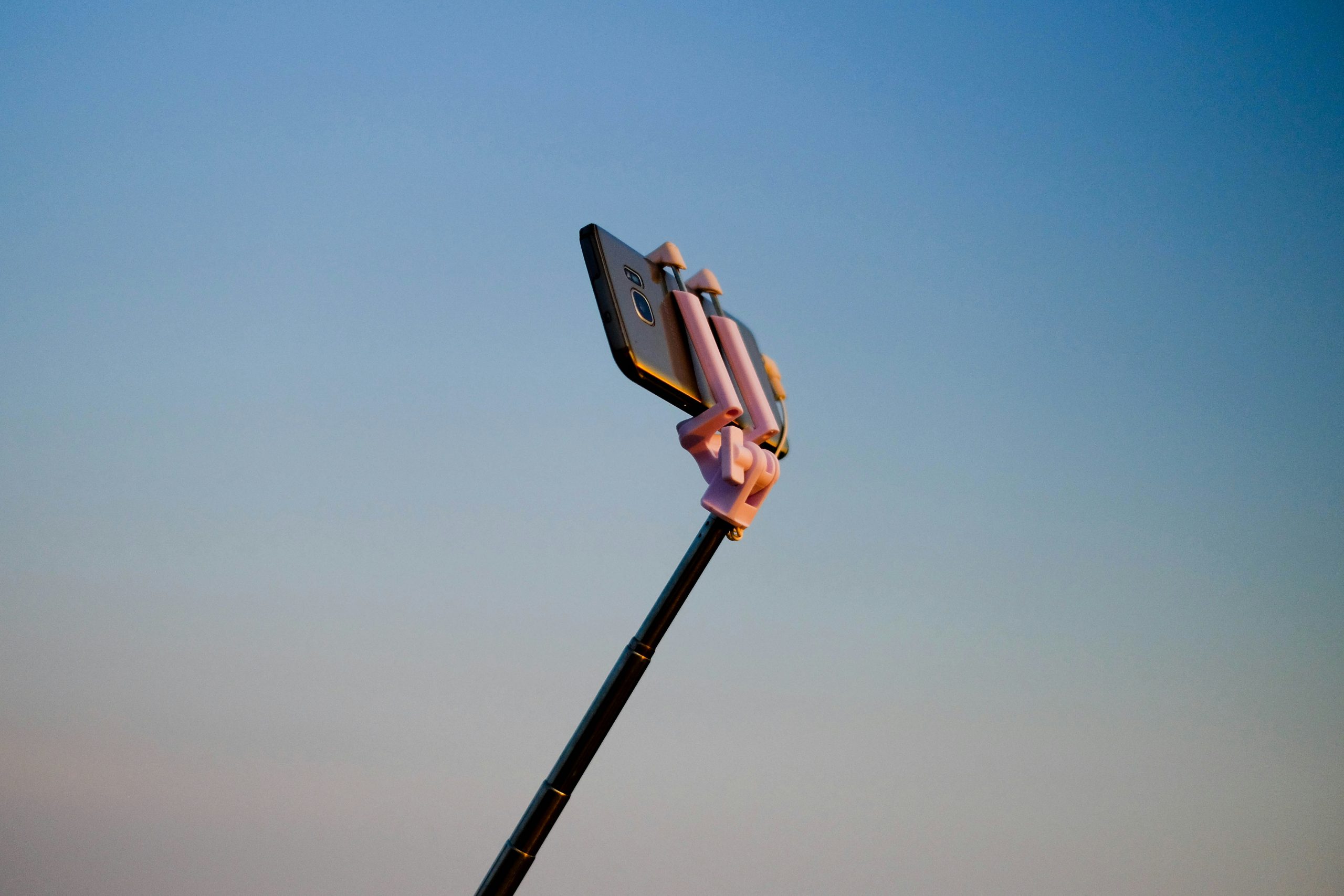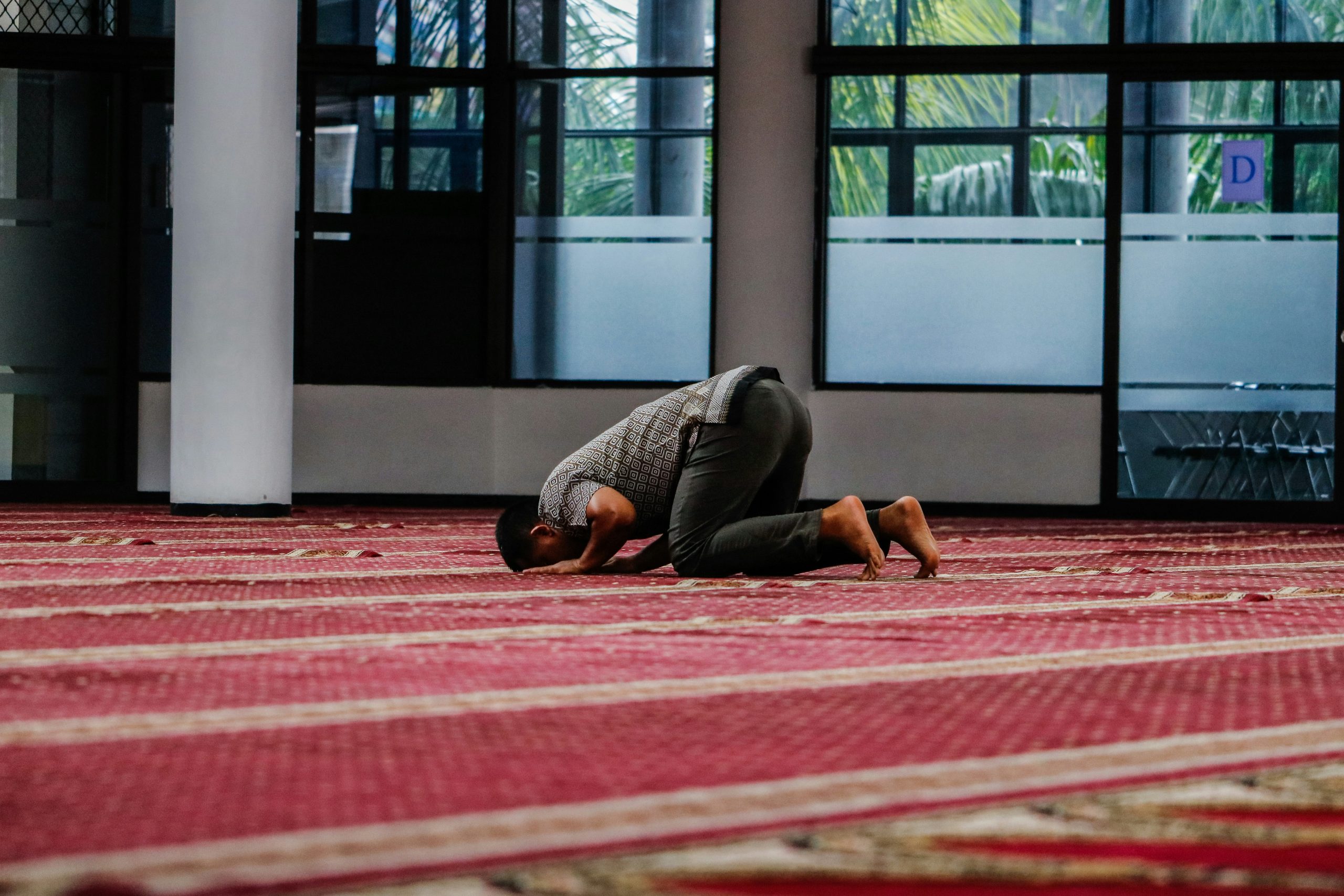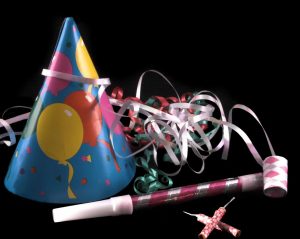Aggregator
Israel plans colony on UNESCO heritage site, as land theft surges
Settler violence is not an aberration, but how the occupation functions.
“The sniper was shooting him for fun”
Guardian's Zionist gatekeeper rewrites Holocaust history
Jonathan Freedland’s book downplays Rudolph Vrba’s heroic criticism of Zionism.
Released into hell after 20 years of Israeli prison
Day 320: Iran's retaliation against Israel is coming
The Democrats use “progressives” to try to sell genocide in Gaza.
Treating the wounded, sick at a makeshift medical point
Israel is destroying education in Gaza
Ceasefire needed to avert mass polio outbreak in Gaza
“An entire generation” of children is at risk of infection, warn aid groups.
[Podcast] From the Maldives to Malaysia: A Shaykha’s Story | Shaykha Aisha Hussain Rasheed
From the Maldives to Malaysia, Shaykha Aisha Hussain Rasheed has traveled many miles in her pursuit of Islamic knowledge! In this episode, Shaykha Aisha shares what it’s like to have her qadr decreed in ways she never expected; insights on studying both Islamic and secular law; and spiritual pitfalls that students of knowledge should watch out for. She also delves into navigating da’wah as a career, especially a woman seeking to balance family obligations and work alike.
Shaykha Aisha Hussain Rasheed is a daughter of the Maldivian islands, currently acclimating to the tropical rainforests of Malaysia with her husband and son. She graduated from the International Islamic University of Malaysia, holds a BA in Islamic Law and Jurisprudence, and a shahadah alimiyyah from Al-Salam Institute, where she is now also a teacher. Pre-order her book, “Auntie Aisha Answers: The Muslim Tween’s Guide to Growing Up!”
Related:
The post [Podcast] From the Maldives to Malaysia: A Shaykha’s Story | Shaykha Aisha Hussain Rasheed appeared first on MuslimMatters.org.
Genocide in a child's mind
From the MuslimMatters Bookshelf: Prison, Prayer, and the Politics of Diversity
“When Only God Can See: The Faith of Muslim Political Prisoners” by Walaa Quisay and Asim Qureshi is a painful, powerful book that functions as both bearing witness to the oft-untold stories of Muslim political prisoners held in the horrors of Guantanamo Bay, Egypt, and other “black sites” of illegal imprisonment and torture, and as an exploration of Islamic spirituality in the “University of Yusuf” (‘alayhissalaam).
Th is is a book about faith, geopolitics, prison, torture, the intensely personal and the blatantly public, and an ongoing reality for so many Muslims around the world. It is a book that all Muslims – especially those of us in the privileged West – need to read, to understand both the larger geopolitical picture at play, and what it means to truly experience tests of faith.
is is a book about faith, geopolitics, prison, torture, the intensely personal and the blatantly public, and an ongoing reality for so many Muslims around the world. It is a book that all Muslims – especially those of us in the privileged West – need to read, to understand both the larger geopolitical picture at play, and what it means to truly experience tests of faith.
Muslim political prisoners in Guantanamo, Egypt, and America (and elsewhere) are not your “average” prisoner – they are guilty of nothing but being victims of a global War on Islam, a geopolitical & Islamophobic campaign of terror and torture. Many of these prisoners were at the wrong place at the wrong time, literally sold into prison by greedy Pakistani military or Afghan warlords, or picked up as part of a regular practice of squashing political & religious dissent against vicious dictators.
This book highlights who these otherwise anonymous prisoners – male & female – really are: what they endure(d), how they endured, & how Islam became their ultimate form of resistance against an injustice that is not held accountable in this Dunya but absolutely will be in the Aakhirah. From their dedication to their salah (Moazzam Begg tells an anecdote about praying in jama’ah with other Muslim men who were bound and threatened by American soldiers on their first rendition flight to Bagram Prison), to prisoners teaching each other Qur’an through the bars of cages and whispering through pipes, the faith of these prisoners holds lessons for every single Muslim.
One could easily write hundreds of khutbahs about iman, sabr, developing a relationship with the Qur’an, personal crises of faith, resistance against oppression, understanding Qada and Qadr, and more – and we’d still have more to learn from what these prisoners go through. The theme of “the University of Prophet Yusuf” echoes throughout this book, reminding us that as Muslims, we have a spiritual tradition of believers being unjustly imprisoned and tortured… a tradition meant to teach the rest of us that freedom, not just imprisonment, is a test from Allah of our own faith.
The stories of the men and women, boys and girls (teenagers as young as 13 and 15!), who endured and continue to endure the torments of both Eastern and Western nation-states does not exist in a vacuum. Qureshi and Quisay provide detailed context to the “War on Terror,” the history of Islamophobia fueling the violence against Muslim prisoners, and the complex ways that systems of incarceration are connected across the world. The book sheds light on the ways that the West and governments of Muslim countries are intimately allied, the systems of power & Islamophobia that span continents, and impact our everyday lives.
Indeed, perhaps one of the most important lessons of this book is that it is not just one kind of Muslim – male, overtly religious, and politically involved – who is at risk of being picked up by security apparatuses as part of the “War on Terror”… any Muslim, male or female, even those who aren’t “practicing” are at risk – it is you and I who could just as easily find ourselves behind bars, alongside the prisoners of this book.
Their stories are our stories. Will we make sure our voices are heard?
…

Aliyah Umm Raiyaan strikes again with her latest book, “The Power of Du’a“! Just as with her first book, Ramadan Reflections, Aliyah brings classical Islamic knowledge and presents it to readers in a manner both easily digestible and relatable, and most importantly, practically applicable. (Perhaps a little too easily digestible at times – I found this book a little fluffier than Ramadan Reflections, and became impatient at being addressed as “Dear reader” constantly.)
Each chapter addresses an element of du’a – approaching Allah, having the correct mindset, good deeds to accompany du’a, and more – alongside individual dua stories, a “Develop your du’a” segment that includes practical tips on incorporating the chapter’s suggestions, and “Allah, transform my du’a” with a written out du’a for you. The structure of each chapter makes it easy to spend time focusing on its content, reflecting on your personal experiences with du’a, and developing effective dua strategies to apply in your life.
I underlined and tabbed numerous parts of this book that resonated with me deeply, and which I knew I’d be returning to regularly in my (many) times of struggle and need. I don’t think I’ve ever tabbed a non-academic book this much! I did find the book repetitive at times, and I wished that many of the du’as from the Sunnah had been written out in Arabic as well.
Even so, I know that this book is incredibly valuable in making this topic accessible and applicable to so many readers who yearn to deepen their connection with Allah. 100% worth ordering for yourself and giving as a gift!
…

What does DEI (Diversity, Equity, and Inclusion) really mean? As universities and corporations fall over themselves to prove just how “inclusive” they really are, Evelyn Alsultany examines where and how Islam and Muslims fall into this framework of “diversity.”
Broken: The Failed Promise of Muslim Inclusion takes a critical look at what diversity has come to mean, particularly in the contexts of Hollywood entertainment, violent hate crimes against Muslims and Arabs, and Zionist targeting of pro-Palestinian students on college campuses.
Alsultany does an excellent job of pointing out the flaws of token “diversity” as a way of addressing (or rather, not really addressing) racism and prejudice, particularly against Muslims or those perceived to be so. She introduces the phrase “crisis diversity”: when a crisis produces a domino effect of responses, namely, the public remembering that a problem exists (e.g. Islamophobia), “experts” showing up to pontificate on the problem, and if we’re lucky, organizations issuing hollow statements and announcing “new initiatives” that vaguely acknowledge the problem.
Alsultany analyzes the ways in which Hollywood has moved forward, and backwards, in its representations of Arabs, Iranians, and Muslims in general. From adding more actors of colour to movie casts, to creating new tropes that don’t actually break stereotypes (e.g. “the patriotic Muslim” who gives their life for America, by fighting against the “bad Muslim terrorists”), Alsultany highlights that “inclusion” isn’t always actually good for us as a community.
Given that this book is an academic work, there is unfortunately no discussion on how “inclusion” in Hollywood is already a spiritually dubious endeavor for Muslims. However, readers should certainly take the time to reflect on the material that the author provides regarding the entertainment industry, and consider whether or not we really want to be included in it to begin with. Scratch the surface just a little, and I think we can all agree that there is almost no way to avoid exponential levels of haraamness in the industry!
Of more significance to the bigger picture are the chapters on racial gaslighting, racial purging, and “flexible diversity.” Racial gaslighting refers to when violence against Muslims, such as the Chapel Hill shooting, are acknowledged as violent crimes – but not acknowledged as hate crimes, and thus stripped of the context of Islamophobia. Alsultany also pushes readers to consider whether there is value in asking law enforcement and the justice system to acknowledge hate crimes to begin with, when these institutions are themselves Islamophobic and perpetuate Islamophobia at a widespread scale. She recognizes that this is a difficult question with no easy answers, and perhaps with no definitive answers at all – but it is a question worth thinking about, especially for those of us involved in grassroots activism and anti-Islamophobia advocacy.
In “Racial Purging,” Alsultany highlights the American phenomenon of “free speech” vs “hate speech,” the politicization of free speech as an excuse to perpetuate Islamophobia, and the way that corporations build their brands by either condemning or uplifting individuals involved in such public scandals. This chapter is particularly useful for understanding individualized vs institutional Islamophobia, and provides important framing for understanding these recurring incidents in the public eye (whether at the mainstream media level, social media, or both).
“Flexible Diversity” is perhaps the most relevant chapter of all: an examination of how “diversity” and “inclusion” are rendered meaningless in the context of the Palestinian cause on university campuses, and how Zionists seek to co-opt the language of DEI as they target pro-Palestinian activists. With a focus on the University of Michigan and notable incidents that took place on UM’s campus, Alsultany shows us how social justice becomes erased in the name of diversity.
“Replacing social justice with diversity changes the approach from rectifying the persistence of legacy of inequality and racial violence to ensuring that everyone is included as if everyone is equally marginalized” (p. 193, Elsultany, 2022). It is by weaponizing the language of inclusivity that Zionists can level accusations of anti-Semitism against those who advocate for the Palestinian cause. “When Zionisim intersects with DEO on college campuses, it perpetuates anti-Arab and anti-Muslim racism and undermines the inclusion of MENA and Muslim students” (Ibid). Alsultany reminds readers of the dangers of falling into DEI-speak, at the risk of losing sight of important principles of justice and anti-oppression.
“Broken” is a book that aptly reflects its title: showing us all that years of pursuing “inclusion” has done very little for the Muslim community, other than putting us in further positions of weakness. The book’s analysis shows us that whether in Hollywood or on campuses, pursuing diversity for diversity’s sake does nothing for our rights – instead, we must change our approach and expectations to a stronger foundation… one of fiercely fighting oppression, and tirelessly seeking meaningful justice instead.
Related:
From The MuslimMatters Bookshelf: Palestinian Literature For All Ages
The post From the MuslimMatters Bookshelf: Prison, Prayer, and the Politics of Diversity appeared first on MuslimMatters.org.
Our real life ended 300 days ago
“Piles of flesh were everywhere”
Day 313: Protesting genocide at the DNC
Can Iran force a ceasefire?
Peanut Butter and Blueberries review – politics complicates student romance
Kiln theatre, London
A familiar romcom isn’t an option for these two young British Muslims, who can’t shut out Islamophobia and public paranoia from their love story
The title? It’s a sandwich filling. In Suhaiymah Manzoor-Khan’s first full-length play, boy woos girl with his signature sarnie: a blend of sweet and crunchy that suits this arrestingly unexpected romance.
They meet at uni in London. Hafsah from Bradford does gender studies and Bilal from Brum struggles with South Asia studies (“Bane of my bleeding life”). They clock each other at a seminar: she scoffs that “he’s one of those Bilals that’s let white people call him Billy”, while he notes she “talks a mile a minute when it comes to colonialism”. Soon he finds excuses to chat: catching feelings in the library, diving into his reading list (“1980s Pakistan was on a mad one”).
Continue reading...What will stop the genocide in Gaza?
Palestinians are being expected to negotiate an end to their extermination.
The Case For An Institutional Approach To Faith In The Era of Religious Internet Influencers
In today’s digital age, we are confronted with a paradox on multiple levels; while online platforms are saturated with religious content, the souls of many believers remain empty. This phenomenon has also become pronounced within Muslim communities, where many are inundated with religious lectures – be they in the form of videos or various messages on social media platforms. The substantial volume of such content does not necessarily entail the existence of genuine cognitive and spiritual fulfillment or authentic living of faith. Therefore, in this context, the question of the importance of institutional versus individual approaches gains particular significance.
Mosques, Islamic centers, madrasas, and colleges traditionally served as the bedrock of religious life and the collective identity of the Muslim community. These institutions provided environments where Muslims gathered for prayers, Quranic and Sunnah studies, knowledge exchange, and support. However, despite their importance, an increasing number of people are turning to religious internet influencers in search of spiritual inspiration, education, and guidance. Such influencers offer an appealing alternative to the institutional approach to faith. Their immediacy, accessibility, and ability to reach the masses worldwide make them attractive to many who feel disconnected from traditional institutions.
The Paradox of Popularity and Spiritual FulfillmentThe key question that arises is: Why are so many people drawn to such internet influencer profiles while simultaneously losing trust in institutions? One of the answers lies in the realities of contemporary lifestyles. People are often burdened by speed, seek instant gratification, and lean towards individualized approaches to understanding religion and living out faith. Internet influencers tailor their content to this mode of thinking, providing concise and inspirational messages that are easily consumable and shareable.

Religious influencer culture [PC: Steve Gale (unsplash)
Many young Muslims worldwide feel that institutions have not adapted to contemporary challenges and needs and do not provide enough space for their active participation and expression. This can result in feelings of distance and disconnection from institutions. Additionally, influencers often focus on issues that are relevant and close to youth, such as identity, mental health, and social justice.However, while internet influencers may provide immediate inspiration, institutions have the potential for long-term, sustainable religious development. Through their activities, institutions promote a deeper understanding of faith, continuous support and mentorship, and integration of religious values into daily life. They also provide stability, authority, and continuity, which are lacking for individuals who often come and go through the internet.
The Importance of AccountabilityOne of the key differences between institutions and individuals is the issue of accountability. While institutions have mechanisms for maintaining accountability and oversight of their actions, internet influencers often operate independently and are not answerable to anyone. This can lead to a lack of transparency, integrity, and authenticity in their messages.
Moreover, influencers often use their popularity to sell books, courses, and other products. This can be beneficial if used as a means for further education and spiritual development of their audience. However, it is important for influencers not to use their popularity solely for commercial purposes but to promote authentic and relevant messages that contribute to the spiritual growth of the community.
It is also important to recognize that many Muslims face a lack of basic media literacy and struggle in the digital world. This can result in difficulties in recognizing relevant information and perspectives and developing critical awareness of the content they consume. Therefore, even when Muslims strive to find information about faith, they may encounter challenges in filtering and evaluating that information, further hindering their spiritual development.
Rhetoric and Influence in the Digital AgeIn his text “The Purpose of Rhetoric,” Ivo Škarić, a prominent Croatian linguist and expert in rhetoric, emphasizes the importance of the ability to express oneself and communicate: “Let everyone learn how to express their thoughts, their stance, their interests! Let everyone be a good speaker so as not to be endangered by speakers.” This statement highlights the importance of the ability to express oneself and communicate in order to protect one’s own views and interests from the influence of others. In the contemporary digital age, we can expand this idea by adding: “Let everyone be a good influencer so as not to be endangered by influencers.”
Furthermore, the statement by Dr. Husein-ef. Kavazović, the Grand Mufti of Bosnia and Herzegovina (Reisul-Ulema), further illustrates the contemporary challenges we face: “The populism we indulge in does not respect the values of religion, family, nation, and tradition, nor does it care about the historical memory of our people. Educated people, scientists, philosophers, and scholars are not appreciated. Populists have taken the stage, catering to the masses, giving them salty water after which they feel even thirstier.”
The Role of Institutional Authorities in Preserving Religious IntegrityThe credibility and continuity of institutional authorities are crucial for preserving the integrity of religious teaching and practice. While individuals may bring new ideas and perspectives, institutions play a key role in preserving tradition and ensuring consistency in the interpretation of religious texts and practices. Therefore, it is more important to follow institutions than individuals, as institutions represent the collective heritage of the religious community passed down through generations. They have a broader context of knowledge and experience that helps interpret religious principles in ways that are relevant to contemporary challenges and community needs.
The Quran emphasizes the importance of seeking knowledge and following those who have it. Allah  says in the Qur’an:
says in the Qur’an:
“And We sent not before you except men to whom We revealed [Our message]. So ask the people of knowledge if you do not know.“ [Surah An-Nahl: 16;43]
This verse underscores the necessity of turning to learned individuals and institutions for guidance.

Pursuing long-term spiritual fulfilment [PC: Aldrin Rachman Pradana (unsplash)]
The Prophet Muhammad also highlighted the significance of seeking knowledge from reliable sources. In a hadith narrated by Abu Hurairah
also highlighted the significance of seeking knowledge from reliable sources. In a hadith narrated by Abu Hurairah  , the Prophet
, the Prophet  said: “Whoever follows a path in the pursuit of knowledge, Allah will make a path to Paradise easy for him.” [Sahih Muslim]
said: “Whoever follows a path in the pursuit of knowledge, Allah will make a path to Paradise easy for him.” [Sahih Muslim]
This hadith emphasizes the importance of seeking knowledge through proper channels and institutions.
By respecting institutional authorities, believers can avoid the pitfalls of subjectivity and personal interpretations and rely on reliable sources of religious learning and practice. This does not mean that individuals should completely relinquish their autonomy and critical thinking, but rather approach faith with respect for authorities dedicated to preserving its foundations and values.
Conclusion: Embracing Institutions for Spiritual FulfillmentWhile religious internet influencers play a significant role in today’s digital age, institutions remain vital for the long-term spiritual development and stability of the Muslim community. Balancing the benefits of both can lead to a more holistic and fulfilling religious experience.
To achieve this balance, it is essential for individuals to actively engage with their local mosques and Islamic centers. Here are some steps to consider:
- Attend Courses: Enroll in classes offered by your local mosque or Islamic center to deepen your understanding of the Quran, Sunnah, and other aspects of faith.
- Participate in Community Events: Join community events and activities to build connections with fellow Muslims and strengthen your sense of belonging.
- Seek Mentorship: Establish relationships with knowledgeable scholars and mentors within the institution for continuous guidance and support.
- Volunteer: Contribute your time and skills to support the activities and initiatives of your local institution, fostering a sense of ownership and commitment.
- Promote Accountability: Encourage transparency and accountability within the institutions to ensure they meet the community’s needs and uphold Islamic values.
By aligning with institutions, believers can benefit from the stability, authority, and continuity they provide while also gaining the immediate inspiration and accessibility offered by internet influencers. This integrated approach will enable a more profound and sustained spiritual journey, ensuring that faith is lived authentically and comprehensively.
Related:
– Drawing a Line in the Sand: Student-Teacher Relationships in the Digital Age
– Podcast: Damage Control With Digital Dinosaurs – On The Fiqh of Social Media | Omar Usman
– Blurred Lines: Women, “Celebrity” Shaykhs, and Spiritual Abuse
The post The Case For An Institutional Approach To Faith In The Era of Religious Internet Influencers appeared first on MuslimMatters.org.
The Things He Would Say – [Part 4]: The Birthday Party
A father with a severely autistic son dreams of going to Hajj, but will it ever happen?
Previous Chapters: Part 1 | Part 2 | Part 3
Author’s Note: The last part of this chapter, in which the family sees a meteor shower, was mistakenly published previously as part of Part 1. It belongs here. And I added a bit to it.
Give Your Auntie a Kiss The next day they went to Murid’s parents’ house for Junaid’s birthday party. There were twenty people at the party, which was too many. It was too much stimulation for Junaid, and would not end well. Mina was opening the presents one by one, and thanking the guests.
The next day they went to Murid’s parents’ house for Junaid’s birthday party. There were twenty people at the party, which was too many. It was too much stimulation for Junaid, and would not end well. Mina was opening the presents one by one, and thanking the guests.
Murid had cautioned her beforehand to keep her normally sharp tongue in check, and she was doing a wonderful job, mashaAllah. Each time she opened a gift, Junaid would come and pick it up, then take it to the floor where he had lined up the gifts in a line. Sometimes he shuffled the items around in the line. He paid no attention to anyone else, in spite of Murid’s parents entreaties to him to, “Give your auntie a kiss,” or, “How about a little smile for your uncle?”
Murid watched the boy playing his game. Junaid would not appreciate anyone trying to join him, Murid knew. In fact it would upset him. He was a handsome boy, average sized for fourteen, with glowing mahogany skin and straight black hair that came to just below his ears. His eyes were wide, his nose straight and prominent. He would grow into a good looking man.
It was hard to pinpoint his mental age, however. Severely autistic kids had a disconnect between the external world and their internal reality. It was possible that he was in fact quite intelligent, but unable to bring his intelligence to bear upon the world around him. In general, other people did not interest him. He could spend long periods of time patrolling the internal perimeter of a house, as if mapping it out or calculating the square meters. He might lie down and rock from side to side while humming, or even just flap his hands.
On the other hand, he had an extraordinary memory. Murid had once tried to teach Junaid to play memory – the card game where all the cards would be placed in a grid face up. The player would study the cards for a moment, then turn them all face down. Turning one up, the player would try to remember where the matching cards were located. Murid had given up after a week of trying, because Junaid kept taking the cards and lining them up in a chain.
A few days later, he’d watched as Junaid, on his own, set the game up, began to play, and proceeded to match every card perfectly from beginning to end.
One of Murid’s deepest wishes was that he could have a conversation with the boy. If, just for ten minutes, Junaid could be granted the ability to speak – no matter what he said – it would be the happiest moment of Murid’s life.
Going to HajjAt some point Murid noticed that his mother had disappeared. She tended to do this. Knowing that she was prone to depression, and knowing what he would find, Murid went looking for her, though not before leaning over Mina and whispering, “Keep on being nice.”
 He found her sitting in the sunroom, weeping silently with a box of tissues in her lap and used tissues scattered about her feet like little goslings waiting to be fed. The room was clean but smelled musty. His mother waved him off, but he sat beside her on the floral-patterned sofa and put an arm around her shoulders.
He found her sitting in the sunroom, weeping silently with a box of tissues in her lap and used tissues scattered about her feet like little goslings waiting to be fed. The room was clean but smelled musty. His mother waved him off, but he sat beside her on the floral-patterned sofa and put an arm around her shoulders.
“It’s okay Mama,” he said. “Everything is fine.”
“I just want more for him, that’s all,” she replied through her sniffles.
Murid wanted to say, “Don’t you think it makes me sad too? I need you to reassure me. I need for someone to say to me, ‘Don’t worry, this is all part of Allah’s plan. Junaid is happy and physically healthy. Be grateful for what you have.’”
But Murid did not say these things to his mother. He should have simply given her shoulders a squeeze and returned to the party, but instead he blurted out, “I’m going to Hajj.”
His mother’s weeping stopped as suddenly as a summer rainshower. “What about the kids? You’re going to leave them with us? You know I haven’t been well, and your father has a temper. We can’t take care of two kids. You could have at least -”
“I’m not leaving them with you. Juliana will stay with them. I’ll only be gone for ten days.”
His mother’s eyes widened in outrage. “You’d leave them with a stranger instead of us?”
He smiled. “She’s not a stranger. She knows Junaid’s needs very well, and she’s patient with Mina.”
Mother’s eyes narrowed. “You cannot marry that woman.”
Murid patted her shoulder. “I’m not going to marry her.” He definitely was not about to tell her about the proposal from Abu Ali to marry Hiba. One shock at a time.
The HairMurid’s aunt Ganya was studying the children with that mean look she sometimes got, like a bird might watch a fox that had just stolen its food.
Time to go, Murid thought. We managed to get through most of the party, it’s a miracle. He was just about to thank everyone for coming and for the gifts, and tell them that he had to get the children home to rest, when Aunt Ganya’s glinty bird gaze turned into speech:
“Murid, you need to control your son. At least get him to give us a kiss. And what is going on with Mina’s hair? It’s a mess, it looks like a bird’s nest.”
Oh shoot, Murid thought. He began to turn to Mina with a restraining hand, but it was too late.
“At least,” Mina retorted, “I don’t smell like stale cucumbers dipped in menthol. And I’m not a mean old biddy who got engaged four times but never married. As for my hair, it’s naturally curly and I’m not driven by a sense of cultural inferiority to iron it out, like most of the women in this family. I’m down with being brown.”
Aunt Ganya sputtered, then attempted to snatch up her walker but instead knocked it over. She began to shout, “I need my walker! I need to get away from this horrible child!”
 Murid’s father shouted at Mina, one of the other aunts yelled at Junaid himself, and a dish of mixed nuts on a side table was knocked over. The dish shattered, and a mixture of nuts and ceramic slivers scattered across the floor. Other family members took one side or another, and finally – of course – Junaid put his fingers in his ears and began to cry.
Murid’s father shouted at Mina, one of the other aunts yelled at Junaid himself, and a dish of mixed nuts on a side table was knocked over. The dish shattered, and a mixture of nuts and ceramic slivers scattered across the floor. Other family members took one side or another, and finally – of course – Junaid put his fingers in his ears and began to cry.
Murid weighed his options. Take Junaid upstairs to the bedroom and spend three hours holding him until he calmed down? While leaving Mina to contend for herself amid this crowd of emotional terrorists? Or take him home, crying all the way, and try to calm him there?
He opted to take the kids home. Lifting Junaid up – something he could barely do at this point – he dragged Mina by the hand, leaving all the presents behind.
Shooting StarJunaid keened in the backseat, hands over his ears and tears streaming down his cheeks. Murid wanted to drive like he was racing the last lap at the Indy 500, in order to get Junaid home and soothe him, but they were on Mission Gorge Road where it topped the hills on the way south to San Carlos. It was windy, and Junaid gripped the steering wheel as the gusts shoved the car back and forth on the road. As they crested a low mountain pass, Junaid fell silent.
“Baba, look!” Mina was pointing out of the rear window. Murid glanced at his side mirror and saw something orange streak across the night sky, then another. He pulled off the road into a truck weighing stop, shut off the engine, and all three exited the car.
Murid stood on the cold asphalt, holding his children’s hands. The cold wind snatched at Murid’s clothing. A white streak flashed across the sky, turning orange as it passed by, startlingly low and close. Then another came and another.
“It’s a meteor shower,” Mina said. “I’ve never seen one before.”
Murid looked at Junaid. He was entranced, his liquid eyes wide. Tears stood on his cheeks, and as a meteor shot by, the fire of its passage was reflected in Junaid’s eyes and in the tears themselves, as if his face were a mirror to the glory of the heavens. His hair whipped in the wind, but he paid it no mind. What was the boy thinking, Murid wondered? Did he know what he was seeing? Or did he think it was some kind of show put on just for him? Perhaps a group of teenage angels were messing about in the sky, shooting off Chinese fireworks for fun?
Knowing SmileSensing his father’s eyes upon him, Junaid turned and met Murid’s gaze. A slight smile came to Junaid’s eyes. He often looked at Murid this way, and it was haunting, because it was as if he were smiling in a knowing way, like one magician regarding another and saying, “I know it’s all an act, but the show must go on.” It made Murid feel like Junaid was about to pick up a cane, don a top hat, and begin a slow dance, ending in the release of a pair of doves from his sleeves. Then he’d speak and say, “I love you, Baba. I was just waiting for the right moment to tell you.”
But of course that wasn’t going to happen. It was an illusion, just like Junaid’s knowing smile, his secret air of knowledge shared, was an illusion. This reality, at times, nearly wrecked Murid.
Then Junaid turned his eyes back to the actual magic show going on – the cosmic show in the night sky – and the moment was lost.
 The meteor shower lasted a full five minutes and was the most incredible thing Murid had ever seen. The last one was the brightest, so low in the sky that Murid imagined he could feel its heat, the way one could close his eyes and feel the heat of a hand passing in front of his face.
The meteor shower lasted a full five minutes and was the most incredible thing Murid had ever seen. The last one was the brightest, so low in the sky that Murid imagined he could feel its heat, the way one could close his eyes and feel the heat of a hand passing in front of his face.
Mina squeezed his hand. “I’m cold. And we’re standing on the side of the highway in the dark. This is spectacularly bad parenting.”
This made Murid laugh for some reason. They returned to the car and drove off, Murid still chuckling.
“Allah sent that for Junaid,” Mina said. “To calm him down.”
“And for you too.”
“No, Junaid is the star. We’re the understudies.”
“Why do you say that?” But no answer came, and when Murid looked in the rear view mirror, both children were asleep.
Did she mean that Junaid was the star of their family because their activities revolved around his needs? Or did she mean that he was in his nature a shooting star, and that the ones they’d seen were his cosmic cousins? Junaid never got an answer to that question.
Part 5 will be published next week inshaAllah
Reader comments and constructive criticism are important to me, so please comment!
See the Story Index for Wael Abdelgawad’s other stories on this website.
Wael Abdelgawad’s novels – including Pieces of a Dream, The Repeaters and Zaid Karim Private Investigator – are available in ebook and print form on his author page at Amazon.com.
Related:The post The Things He Would Say – [Part 4]: The Birthday Party appeared first on MuslimMatters.org.
